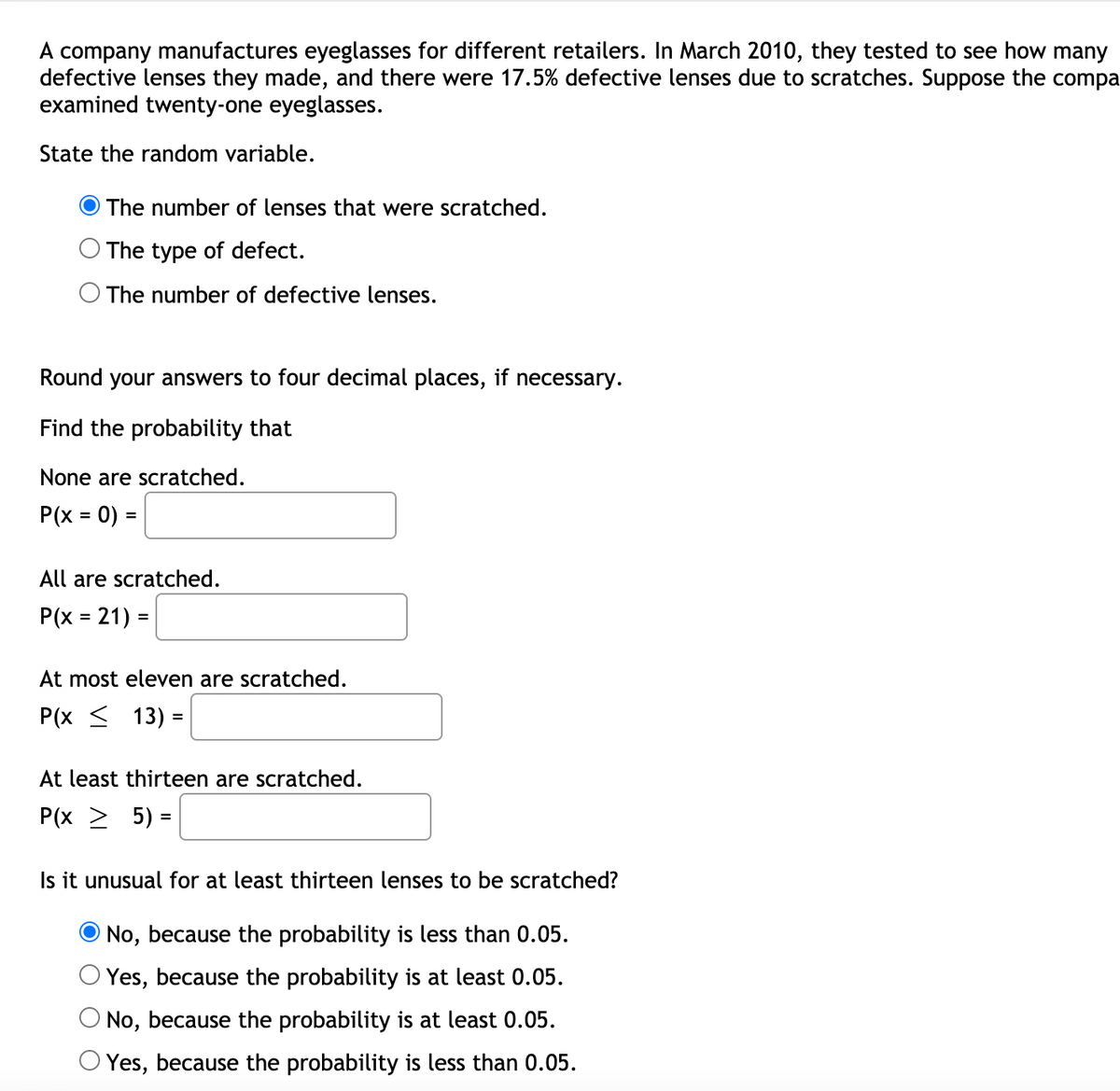A company manufactures eyeglasses for different retailers. In March 2010, they tested to see how many defective lenses they made, and there were 17.5% defective lenses due to scratches. Suppose the compa examined twenty-one eyeglasses.
A company manufactures eyeglasses for different retailers. In March 2010, they tested to see how many defective lenses they made, and there were 17.5% defective lenses due to scratches. Suppose the compa examined twenty-one eyeglasses.
Chapter8: Sequences, Series,and Probability
Section8.7: Probability
Problem 50E: Flexible Work Hours In a recent survey, people were asked whether they would prefer to work flexible...
Related questions
Question

Transcribed Image Text:A company manufactures eyeglasses for different retailers. In March 2010, they tested to see how many
defective lenses they made, and there were 17.5% defective lenses due to scratches. Suppose the compa
examined twenty-one eyeglasses.
State the random variable.
The number of lenses that were scratched.
O The type of defect.
The number of defective lenses.
Round your answers to four decimal places, if necessary.
Find the probability that
None are scratched.
P(x = 0) =
All are scratched.
P(x = 21) =
At most eleven are scratched.
P(x < 13) =
At least thirteen are scratched.
P(x > 5) =
Is it unusual for at least thirteen lenses to be scratched?
No, because the probability is less than 0.05.
Yes, because the probability is at least 0.05.
O No, because the probability is
least 0.05.
Yes, because the probability is less than 0.05.
Expert Solution
This question has been solved!
Explore an expertly crafted, step-by-step solution for a thorough understanding of key concepts.
This is a popular solution!
Trending now
This is a popular solution!
Step by step
Solved in 2 steps with 2 images

Knowledge Booster
Learn more about
Need a deep-dive on the concept behind this application? Look no further. Learn more about this topic, statistics and related others by exploring similar questions and additional content below.Recommended textbooks for you

